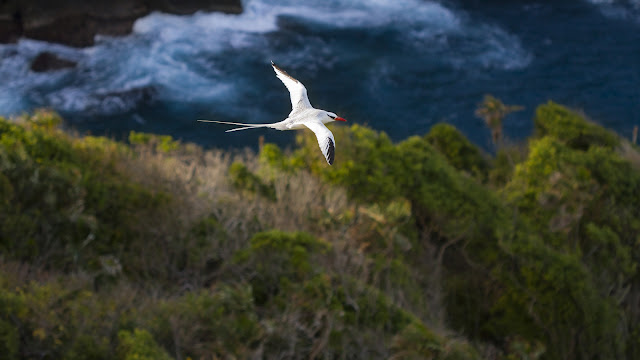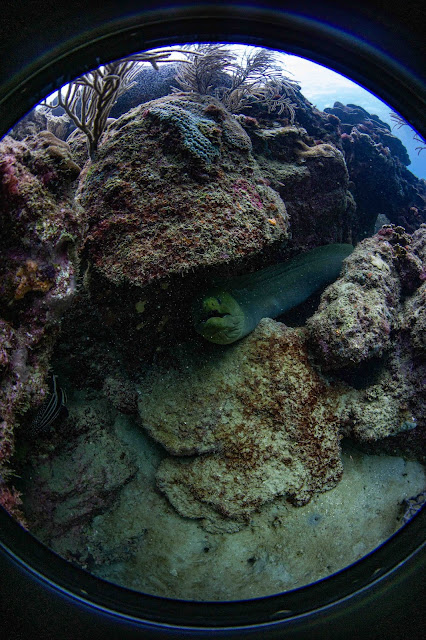The Therapy of Birding
How becoming aware of birds in nature can affect your mood and mind: Faraaz Abdool reflects on what birds can teach us about living in the now. Even accidental or occasional birders can enjoy the benefits of birds. All photos by Faraaz Abdool
While scrolling through my social media feed a couple days ago I came across a word I hadn’t previously seen: “ornitherapy.” Aside from the word rolling supremely easy off the tongue, it jumped out at me for a couple other reasons. Firstly, “orni“ indicates something bird-related, and secondly “therapy” suggests a practice which would result in the overall betterment of one’s state. I couldn’t believe it, here was a word describing a familiar – and formerly indescribable – feeling. A single word to summarize the warm euphoria experienced when sharing a moment with any number of feathered beings.
I did a quick search and found a book entitled Ornitherapy: For Your Mind, Body, and Soul by Holly Merker, Richard Crossley, and Sophie Crossley. Published in March 2021, the book expands on the basic definition of ornitherapy as “the mindful observation of birds benefiting our minds, bodies, and souls.”
Certainly, the discerning reader must be wondering if this is legitimate, how on earth can watching birds be a form of therapy – and why hasn’t anyone over the entirety of human existence ever noticed this? Well, some people have discovered the therapeutic benefits of enjoying wild birds; they are called birders. Before we get lost in nomenclature and categories of hobbyists, a birder can loosely be defined as anyone who enjoys the presence of wild birds in their natural habitat.
This extends welcoming arms to anyone who has ever seen a bird and paused for a moment to marvel at it. A birder may be someone who travels halfway around the planet to see particular birds. A birder is also someone who enjoys the sound of birdsong in the morning, wafting in through the kitchen window. You may not yet be aware of it, but you might just be a birder yourself, already raking in the benefits of ornitherapy!
It is important to not get lost in the pursuit, however. As humans living in the 21st century, we are thoroughly conditioned to always pursue. Stillness is frowned upon; contentment is often labelled as complacency. There is an unspoken (albeit subliminally implanted) ethos among us to continually do more, see more, accomplish more, and make more. Even birders can fall victim to this disease, many of us carry a list of species we have already seen. The consequence of this is a list of species we aspire to see, and this is a concept which many of us can become consumed by – thus becoming wholly lost.
This desire for “more” effectively puts our focus in the future. This is the flipside of living in the past and is equally detrimental to our wellbeing. It is objectively impossible to live in the present by reading the news – as the news is all that has already happened. Similarly, it is equally impossible to live in the present by studying for an exam – as that is a future occurrence. It is natural to have memories as well as aspirations, but very little of what we do aligns with nurturing our “now” – which is quite literally, all we truly have.
The interconnectedness of all life is evident when observing nature, for example, the existence of the mighty samaan tree is hinged on the presence of tiny hummingbirds like this Black-throated Mango.
In nature, there is much more than what meets the cursory eye. Adult Shiny Cowbirds lay their eggs in the nests of other birds - in this case a House Wren - who are then tasked with the responsibility of raising alien young. The juvenile Shiny Cowbird on the right is much bigger than its foster parent!
Countless therapists and gurus extoll the benefits of living in the present moment, but very few of them actually tell us how this can be achieved. The trite advice of “pay no attention to the past” and “avoid the fear of the future” leaves us nowhere closer to peace. The key to living in the present does not lie within the neglect of the past or the future, however. All aspects of past, present, and future form the basis of our existence and all are entirely necessary.
There are a few simple steps to accessing the present. Firstly, we must wipe our mental slate clean of any expectations. If we expect a specific outcome of a particular experience, then the expectation itself detracts from the experience. Secondly, any memory or prior knowledge of the experience needs to be on the proverbial back burner. This doesn’t imply that one should forget how to walk, or speak, or even breathe! This merely refers to an acknowledgement of the fact that we do not truly know all that there is to know – thus opening our mind to new information. Lastly and most importantly, for us to truly experience the present, we must immerse ourselves in something greater which itself is based entirely on the present. That greater immediate presence is nature.
Intimate moments abound in nature. A pair of Channel-billed Toucans is seen here mid-courtship in the forests of Grande Riviere.
Every aspect of nature is predicated on the now. An egret nonchalantly cruising from one pond to the next is not wondering what it is going to do upon arrival. Nor is it ruing a missed opportunity at the previous pond. It needs to be attentive to its present condition, should its attention waver it would then become easy prey for a passing falcon. A woodpecker banging away at a tree trunk is entirely focused on its action at that moment. Should its thoughts wander to its hungry nestlings waiting for dinner, it may lose an opportunity to grab an insect momentarily dislodged by the hammering. These are our teachers, and we must be open to being the students.
The unbiased, conscientious observation of nature has enormous therapeutic benefits. Birds are extra special as they are ubiquitous, accessible, and endearing. Anyone, anywhere, has the right to enjoy birds. It has been scientifically proven that hearing the songs of birds has a similar effect on the human psyche as an increase in salary. This accessible aural tonic is especially vital to balance our existence as a mostly visual species.
The next time you see a bird, don’t think of where it came from, or where it’s going – just observe it being present and maybe you too would be inspired to live in a similar manner. Do remember that you can see a species and tick it off on a list but relegating the existence of all individuals to that of a species does a great injustice to the living experience we collectively share.
Seeing a bird is vastly different from spending time with people. Comfortable with the observer's presence, a relaxed Ferruginous Pygmy-Owl performs a stretch.







